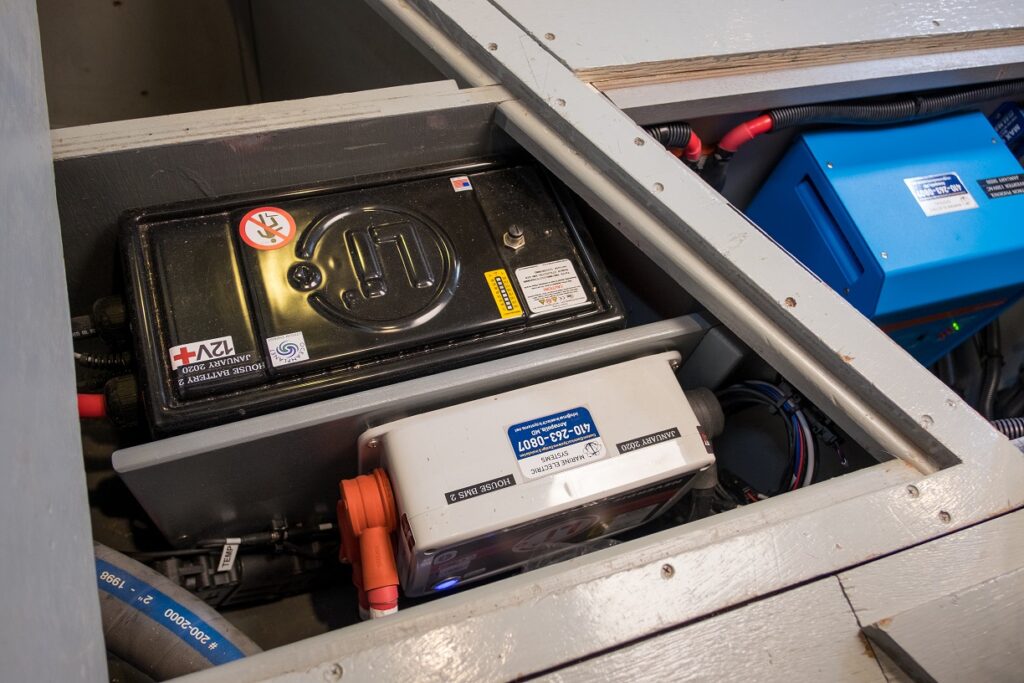
Although marine batteries can withstand harsh conditions, they can still degrade over time.
If you spend a lot of time on the water, you understand the importance of a reliable marine battery. Marine batteries are made to withstand harsh marine environments and provide reliable power for engines, powering electronics, and auxiliary power. Although marine batteries can withstand harsh conditions, they can still degrade over time. Here are some tips to prevent your marine battery from corroding.
What Is Marine Battery Corrosion?
Marine battery corrosion refers to the oxidation of metal terminals on the battery’s surface, causing it to produce a greenish or white powdery substance. Corrosion happens when the sulfuric acid releases hydrogen gas. As hydrogen gas mixes with the moisture in the air, the chemical reaction causes corrosion. This can happen when the battery is damaged, overcharged, or stored improperly for an extended time, affecting its performance and overall lifespan.
Clean Your Battery Regularly
The most important thing you can do for your marine battery is inspect and clean it regularly. Over time, cells gather dust, debris, and other materials that interfere with the connectors and cause damage. Inspecting and cleaning your marine battery prevents premature wear and tear. Use a small wire brush to clean off the terminals, and then apply water and baking soda to lift corrosion off the equipment. Make sure you wipe everything away before using the battery to prevent unnecessary damage to the cell.
Store Your Battery Properly
Even durable marine batteries will degrade if constantly exposed to the elements. Temperature fluctuations and moisture can cause the battery’s materials to break down and erode. If you won’t be using your boat for a while or you’re going to retire it for the winter, remove the batteries and store them away. Always keep your marine batteries in a safe location where they won’t get jostled, knocked over, or damaged. Put them on an elevated wooden surface to avoid unnecessary exposure.
Don’t Overcharge
Corrosion occurs in overcharged batteries due to increased pressure forcing the electrolyte through the plate. Even a small overcharge can damage your marine battery and affect its performance. So, you must charge your marine batteries to the correct capacity to ensure longevity. If the voltage gets too high, it can corrode the terminals, damaging the cell and decreasing its lifespan.
Avoid Battery Corrosion by Switching to Lithium Batteries
Most batteries, especially lead-acid batteries, get corroded over time. It can be daunting to control this corrosion. The best way to avoid marine battery corrosion is to use batteries that aren’t prone to this issue. Lithium batteries are a fantastic alternative because they don’t require maintenance, venting, or face issues of corrosion.
Marine Electric Systems, LLC is a Leader In the Maritime Industry
We here at Marine Electric Systems have over 30 years of industry experience. You can trust our team for reliable service and expert craftsmanship in the Maryland, Baltimore, Annapolis, and Baltimore city areas! We’re highly certified and adhere to all ABYC and NMEA regulations. We specialize in top-notch electrical solutions for recreational, commercial, and government boating clients. Anything from electrical refits, to navigation systems, or boating maintenance. To stay up to date on our services, follow us on Facebook, LinkedIn, Pinterest, Instagram, and YouTube. You can also contact us at 410-263-0807.
